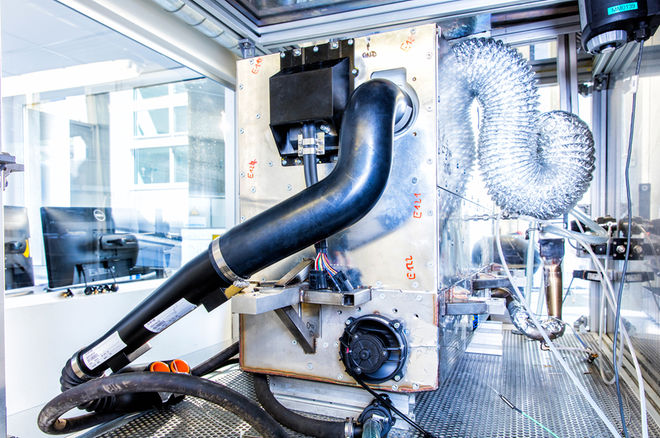
Nissan is researching and developing a new e-Bio Fuel cell powertrain that can produce electricity frombio-ethanol or natural gas. The system uses a Solid Oxide Fuel-Cell (SOFC) that produces electricity by combining oxygen with various fuels to power the SOFC power generator. Nissan claims the system to be very efficient.
Electricity is generated by transforming bio-ethanol into hydrogen through an electrochemical reaction from a reformer and atmospheric oxygen. The electricity is used to power the vehicle’s electric motor. Nissan claims the SOFC power generator is more efficient than conventional fuel cell systems and can give the vehicle a range of more than 370 miles (600 km). The automaker says the SOFC vehicle drives like a regular EV.
Bio-ethanol, which is derived from various crops including sugarcane and corn, used in fuel-cell systems are said to generate power without harmful byproducts. While fuel-cell systems generate CO2 during the conversion process, those carbon emissions are said to be neutralized during the sugarcane’s growing season, thus making a “carbon-neutral cycle,” according to Nissan.
Other benefits of bio-ethanol include the ability to blend ethanol with water making it less volatile and easier to create infrastructure. Nissan also claims vehicle running cost are “on par with today’s EVs,” and that the cells are quicker to refuel than charging a conventional EV.
SOURCE: motortrend
